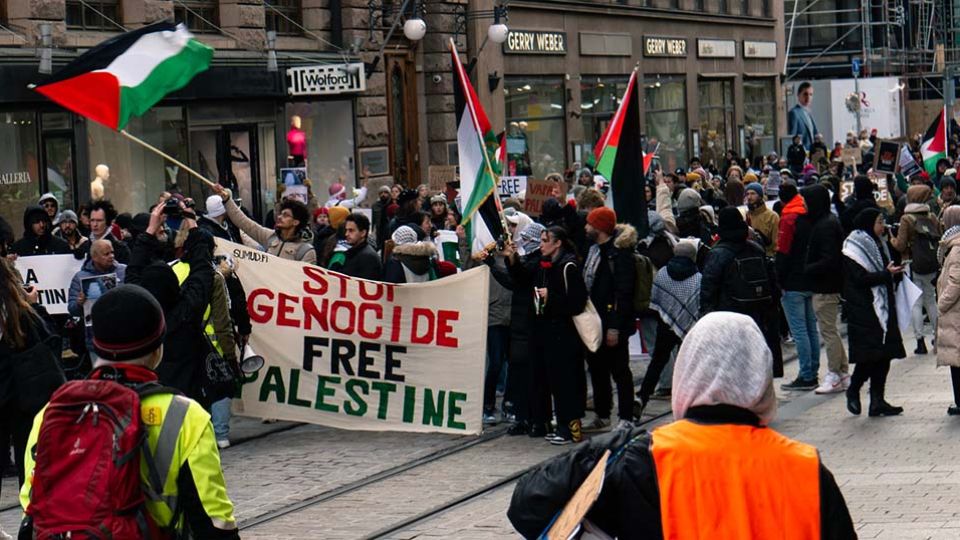July 23, 2024
JAKARTA – Indonesia said on Monday that it would use the International Court of Justice’s (ICJ) advisory opinion against Israeli presence in occupied Palestinian territories as “momentum” to intensify its pro-Palestine diplomacy, amid worries that the nonbinding ruling will do little to remedy the conflict.
On Friday, the ICJ delivered the advisory opinion that established the illegality of Israel’s presence in the occupied Palestinian territories, in a case that was made at the request of the United Nations General Assembly (UNGA) in December.
The Hague-based court also said all countries should stop rendering aid that in any way could enable the continuation of Israel’s occupation and that the UNGA and the UN Security Council (UNSC) should decide on “precise modalities” and further actions to bring Israeli occupation to an immediate end.
Although not a member of the UNSC, which has the power to produce legally binding resolutions, the Foreign Ministry on Monday said that Indonesia would heave pressure on the UNSC through its diplomatic corps in New York, the United States.
“We will keep a close watch on the activities at the UNSC, and ask the people in New York to implement the advisory opinion. This includes [diplomatic efforts] to lobby countries to stop them from aiding [Israel],” said Amrih Jinangkung, the ministry’s legal affairs and international agreements director general.
“We will do what we can: talk to as many parties as we can.”
Read also: Indonesian, OIC diplomats appeal for Palestinians once again, this time at UNSC
Abdul Kadir Jailani, the ministry’s Asia Pacific director general, acknowledged that while Indonesia may not be able to play a direct mediating role in the conflict, it would use whatever avenues possible to be a proactive actor in pushing for the two-state solution in the Middle East, including through the Organization of Islamic Cooperation (OIC).
“We are aware that there are aspirations for Indonesia to play a mediating role in the conflict. Yet the dynamics of every conflict are different, and some countries that are in better positions [than us] are already playing [mediating] roles,” Abdul said.
He did not mention which countries they were but he was responding to questions about whether Indonesia would follow in the footsteps of Qatar, which has taken on the role of conciliator between Israel and Palestine.
“So, we have to be pragmatic in playing our roles. Right now, our foreign minister is a special envoy of the OIC. It is a sign of our proactiveness,” Abdul said.
Indonesia has no official diplomatic relations with Israel, rendering high-level talks with Tel Aviv unfeasible. Abdul said that Foreign Minister Retno LP Marsudi had attempted on multiple occasions to visit Palestine after the conflict escalated on Oct. 7 of last year, but has had no luck in receiving clearance.
Experts have been skeptical about the implementation of the ICJ advisory opinion, given its legally nonbinding nature and the fact that the US, Israel’s most powerful ally, has veto power at the UNSC where resolutions to implement the ICJ ruling are expected to be drafted.
Read also: RI calls for end to ‘illegal’ Israeli occupation of Palestine
But Indonesia has been ceaseless in its diplomatic efforts to promote a permanent ceasefire and the two-state solution, either during bilateral engagements with its partners or through the OIC, which has conducted multiple shuttle diplomacy trips to Western countries in the past eight months.
Indonesia is adamant that the world’s largest Muslim population will not “normalize” ties with Israel until the two-state solution is implemented in the Middle East and Palestinians have the right to self-determination.
“Indonesia’s fight for Palestine has a long way to go, and it requires obstinacy and consistency,” said Retno in early June. “[This] hasn’t been easy. It’s extremely challenging to [uphold] such a principle in a disorganized world filled with pressure from all directions and the lure of various transactions.”
She did not elaborate on the latter part of her statement, including whether the government had received any offers to change its stance on the Palestinian cause, only acknowledging that Muslim countries had been pressured to normalize their ties with Israel.


